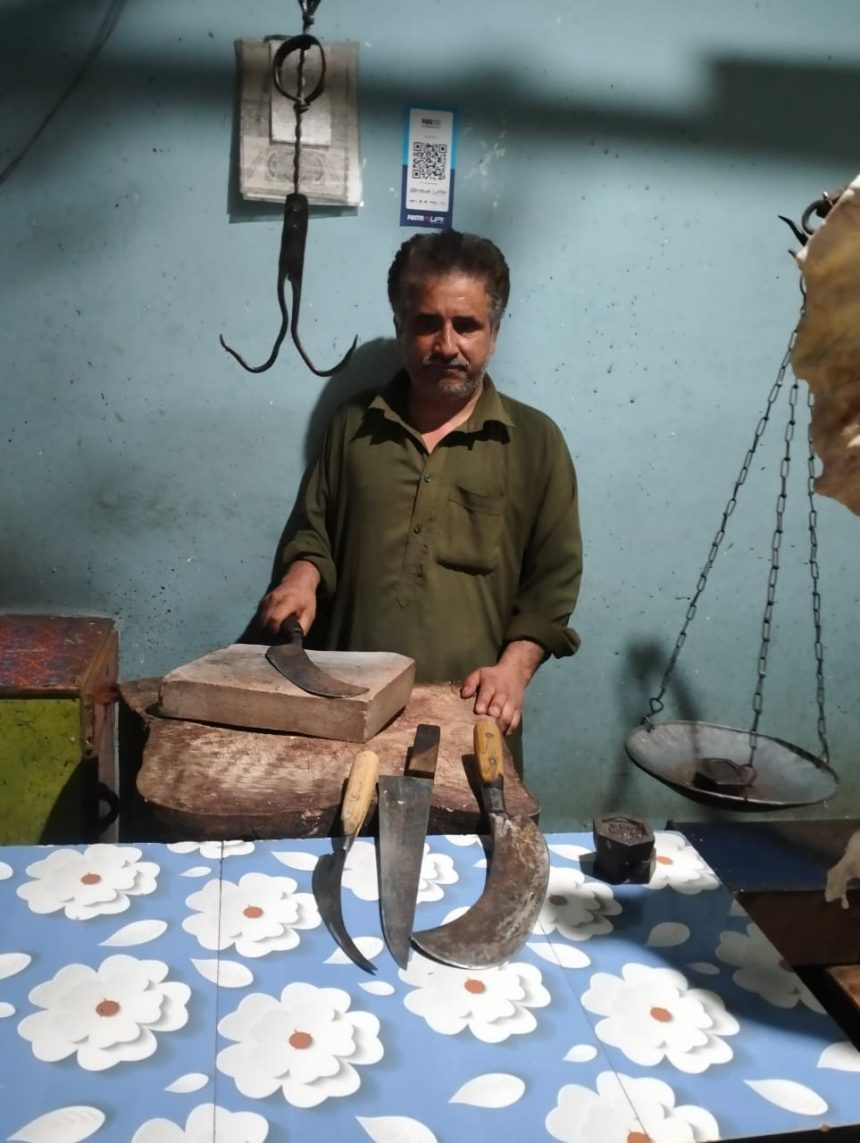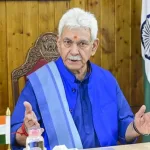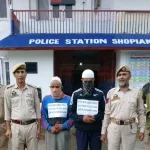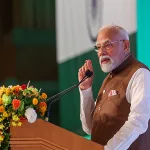Srinagar, June 06: As most Kashmiris wake to the fragrance of festive dishes and the sound of Eid greetings, the ritual sacrifice of livestock begins, a solemn reminder of Prophet Ibra-him’s unwavering faith.
Eid ul-Adha, one of the most important Islamic festivals, is known as a time of celebration, sacrifice, and connection with faith and family. For most, it’s a holiday, a break from work, a time to visit relatives, exchange gifts, and prepare elaborate meals. But for a particular group in society, namely local butchers, the festival is the busiest time of the year, marked not by rest but by intense labor.
Mushtaq Ahmad, a 44-year-old butcher from Nadihal village of Bandipora has worked every Eid for the past 12 years. “We don’t sleep. We don’t sit. But we still do it because it’s more than just a job. It’s a responsibility,” he said while preparing his equipment at his shop.
During the three days of Eid ul-Adha, thousands of goats, sheep, and cattle are sacrificed across the Kashmir Valley in memory of Prophet Ibrahim’s devotion. However, for the men performing the sacrifices, it is also a marathon of physical endurance.
“From 5 a.m. to 10 p.m., I visit up to a dozen homes each day. That’s nearly 20 animals over three days. There’s little time for food, let alone rest,” Mushtaq said.
While others gather for tea, spend time with children, or host guests, these butchers move from one household to another, fulfilling religious duties on behalf of others. Their tools are packed in cloth, their mobile phones ring constantly with requests, and they often travel long distances to meet the growing demand.
Gh Mohammad Waza, 48, travels every year from Sumbal sub Division to Bandipora to meet his regular clients. “I’ve done this for years now. People trust me to carry out the qurbani properly. It’s tiring, but I take pride in the work,” he said.
Despite the physical challenges, many butchers say that Eid ul-Adha is not just about the vol-ume of work, but the meaning behind it. They see themselves as enablers of faith, helping families perform one of Islam’s most significant rituals.
“I make niyyah before each sacrifice,” said Mohammad. “This is not ordinary work. It’s a ser-vice to faith, and that’s what motivates me.”
Butchers are deeply aware of the expectations placed on them. Each animal must be handled with care, each cut performed according to Islamic guidelines. Mistakes are rare and not tol-erated.
“You have elders watching, children standing nearby, and people praying while you work. That pressure keeps you alert,” said Mohammad. “No matter how tired we are, we try to en-sure every qurbani is done properly.”
While families enjoy feasts and reunions, butchers live a very different version of Eid. Meals are often skipped or eaten in haste between visits. New clothes are rarely worn; there’s no time to join family gatherings. “By the time I finish my last sacrifice for the day, it’s almost 8 PM. Everyone else is resting or sharing meals. That’s when I eat,” said Mohammad.
Their families, too, adjust to this unique routine. Children grow up seeing their fathers leave early and return late during Eid. Wives pack extra clothes, and wait patiently for the end of the day.
“My family understands,” said Mushtaq “They know this is part of who I am, and what this festival means for us.”
Butchers often feel a strong connection to the muslim community they serve. They are called not just for their skill, but for their reputation, their care with animals, and their understanding of religious obligations.
Most of them have no formal training, learning the skill from elders or through experience. They are not part of registered unions or official organizations, but they are known in every neighborhood by name.
“We grow up learning from elders how to handle animals, how to perform the qurbani proper-ly,” said Mushtaq. “It’s knowledge passed down like an heirloom.”
Clients often book their preferred butchers weeks in advance. Some butchers even maintain lists, noting down dates, times, and addresses for each visit. “It becomes a network of trust. If you’ve done well one year, ten more homes will call you the next,” Mushtaq added.
The intense pace of work continues for three days straight. Most butchers start before dawn and work well into the night, stopping only briefly for namaz or a quick meal.
“By the second day, your body feels like it’s falling apart. But you still have ten more houses to visit”, said Bilal, another Butcher from Arin village of Bandipora.
As the final day of Eid concludes, and homes are filled with the aroma of cooked meat and the echoes of laughter, the butchers begin to wrap up. Blades are cleaned, clothes washed, and tools packed for another year.
Despite their exhaustion, most carry a quiet sense of fulfillment. “This is our Eid,” said Bilal. “It may not look like others’ but it’s meaningful in its own way.”








